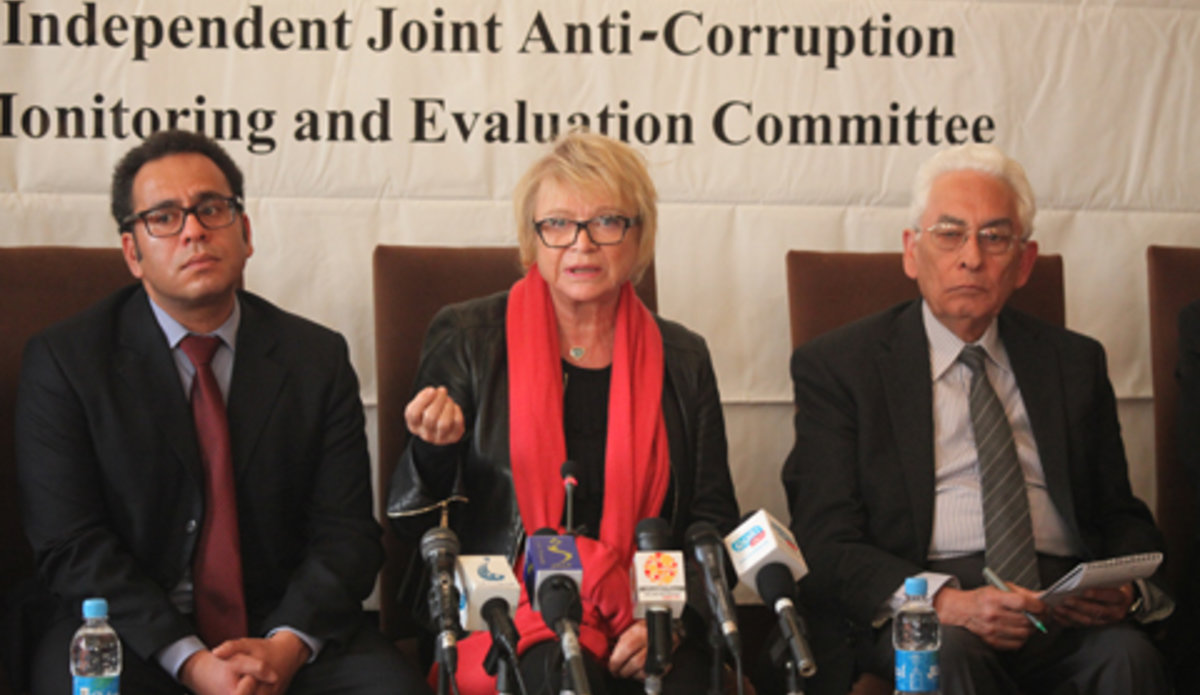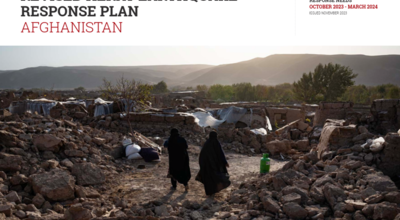Afghan anti-graft body reports unlawful land usurpation, import of substandard medicines
KABUL - A United Nations-backed high-level anti-corruption body today said that over 1.2 million jeribs of land (approx. 240,000 hectares) in Afghanistan were usurped by “powerful individuals,” particularly those who had significant influence in the government during the past decade.
“Unless there is strong political will to bring serious reforms in the structures of relative government institutions, no improvement can be expected in controlling land usurpation,” said a member of the Independent Joint Anti-Corruption Monitoring and Evaluation Committee (MEC), Dr. Yama Torabi, at a news conference in the capital, Kabul.
Speaking at the event organized to release the MEC’s six-monthly report, Dr. Torabi expressed concern that law enforcement agencies have been “ineffective in investigating and prosecuting land usurpation.”
The MEC – which is made up three senior anti-corruption experts appointed on Afghan government’s recommendation and three others on the recommendation of the UN, on behalf of the international community – is mandated to develop anti-corruption recommendations and benchmarks; monitor and evaluate the government and international community efforts to fight corruption; and to report to the President, Parliament, people and international community. It releases a report of its assessments and findings of the agreed-upon benchmarks every six months.
Dr. Torabi highlighted that only 34 per cent of Afghanistan’s land has been surveyed and lack of survey and registration process for the remaining 66 per cent provides “ample opportunities” for land usurpation.
He added that land-management system is generally governed by the courts in Afghanistan and forging official documents by court employees appeared to be one of the main methods of land usurpation.
“The system of land registration must be driven out of court system and introduce electronic systems instead of manual mechanism to reduce opportunities for land usurpation,” said Dr. Torabi.
He also said that complex bureaucratic methods of land transfers have exacerbated the problem and that there are reports of forging and falsifying signatures and documents from various departments of the Kabul Municipality.
According to another MEC report, on the import of medicines, also launched at the same event today, at least 50 per cent of Afghanistan’s $700 to $800 million pharmaceutical import market consists of illegally imported products.
Presenting the report, an international member of the MEC, Eva Joly, said that the importation process of medicines is highly vulnerable to corruption, from registration of foreign pharmaceutical companies, to the registration documents themselves, to laboratory-based quality control.
“The health of people of Afghanistan is under threat,” said another member of the Committee, Prof. Mohammad Yasin Osmani, while expressing concerns over the abundance of substandard pharmaceuticals in the Afghan market. “There is no mechanism currently in place to control the market.”
The MEC members recommended controlling more effectively the quality and volume of pharmaceutical products entering Afghanistan through a range of reforms to the registration and licensing processes. Similarly they urged for promoting technical surveillance and monitoring capacities to ensure that production and import companies are adequately vetted and that pharmaceuticals entering the country are subjected to rigorous quality controls.
 UN
UN








